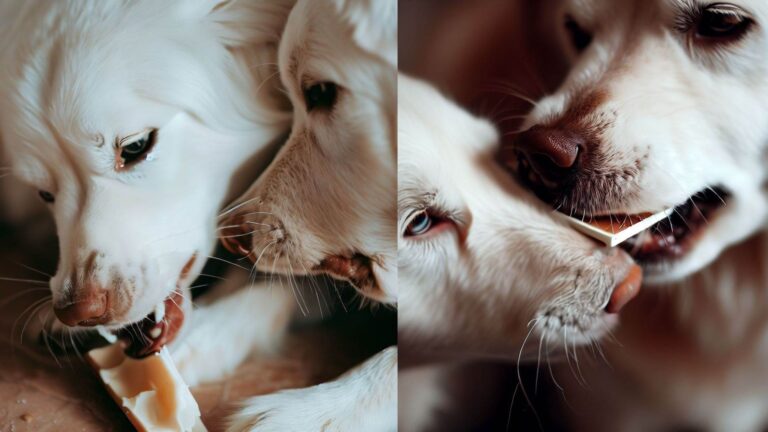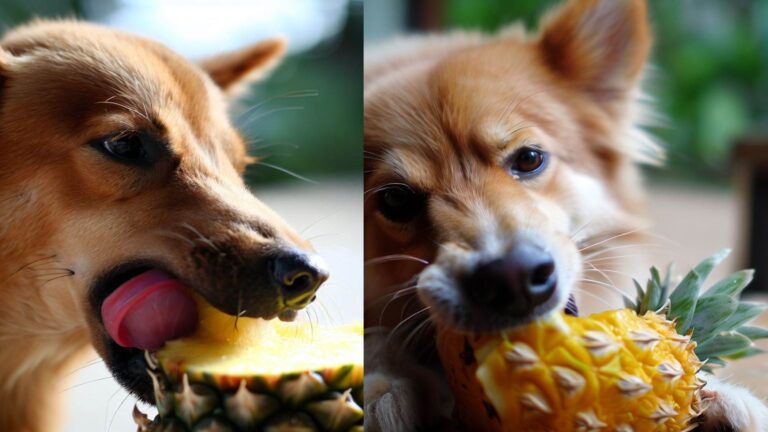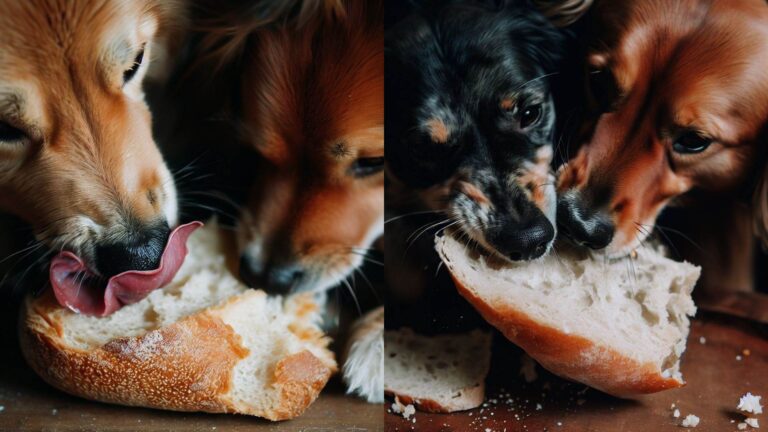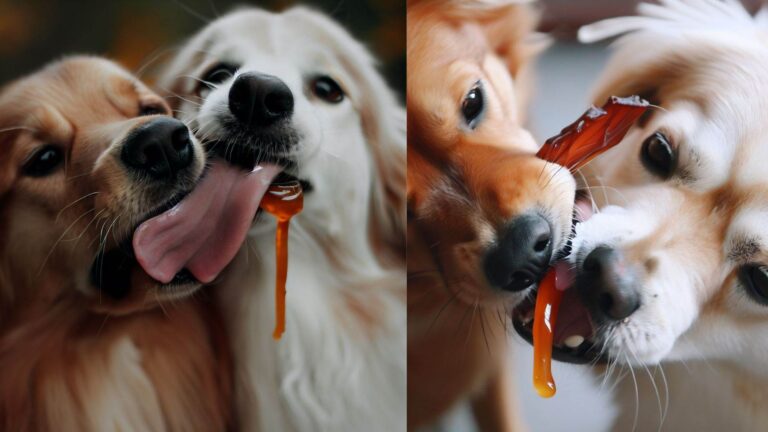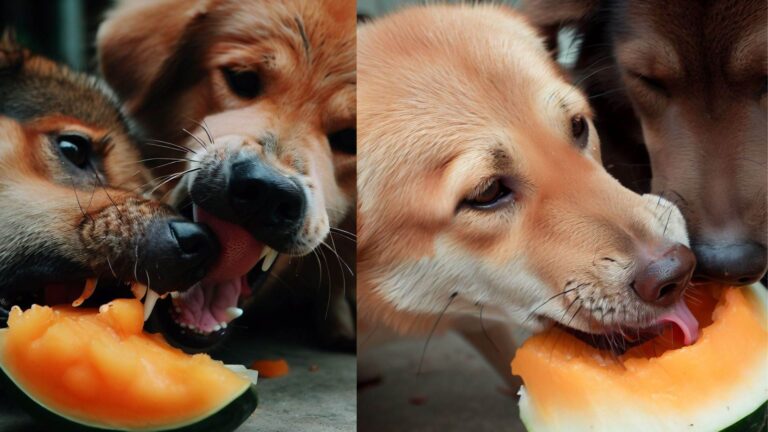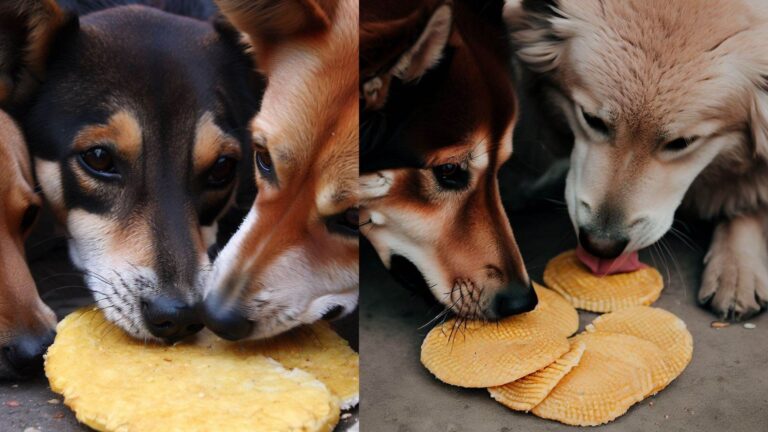If you’re a dog owner, you’ve probably wondered at some point whether your furry friend can enjoy the same foods as you. Pepperoni, a popular pizza topping, is one such food that might be on your mind. So, can dogs eat pepperoni?
Table of Contents
The short answer is no; dogs should not eat pepperoni. Here’s why:
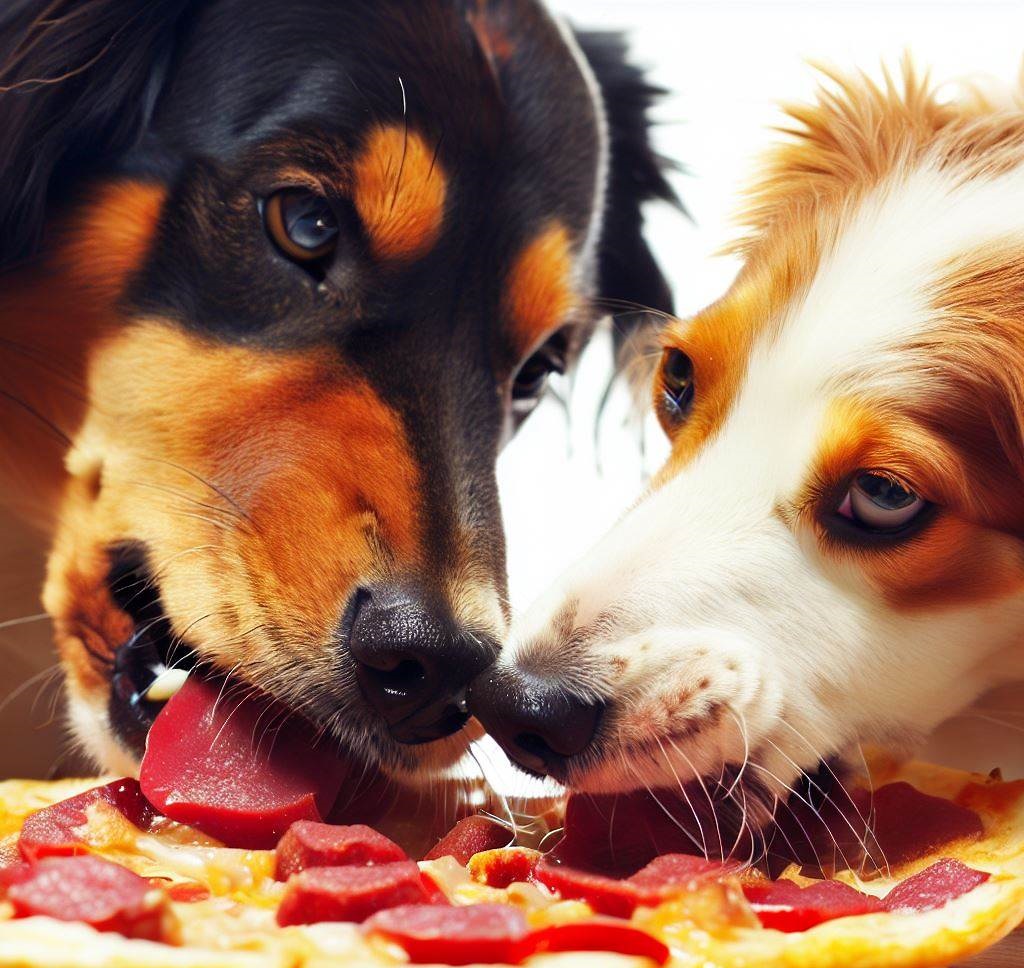
High in Fat and Salt
Pepperoni is a highly processed meat that is high in fat and salt. Dogs require a balanced diet that is high in protein, but they don’t need the excessive fat and salt that come with processed meats like pepperoni. Ingesting too much fat and salt can lead to obesity, pancreatitis, and other health issues in dogs.
Contains Spices and Flavorings
Pepperoni is made with a variety of spices and flavorings, including paprika, garlic, and fennel seed. While these ingredients may be safe for humans, they can cause digestive issues and other problems for dogs. Garlic, in particular, can be toxic to dogs in large amounts.
Possible Choking Hazard
Pepperoni is often sliced into small pieces, making it a potential choking hazard for dogs, especially small breeds. A piece of pepperoni lodged in a dog’s throat can cause serious breathing difficulties or even death.
Can Trigger Allergic Reactions
Some dogs may be allergic to certain ingredients in pepperoni, such as pork or spices. Signs of an allergic reaction in dogs include itching, redness, swelling, and gastrointestinal distress.
Increased Risk of Pancreatitis
Pepperoni is high in fat, which can lead to pancreatitis in dogs. Pancreatitis is a condition in which the pancreas becomes inflamed, causing vomiting, diarrhea, and abdominal pain. In severe cases, it can be life-threatening.
Salt Toxicity
Pepperoni is also high in salt, which can be toxic to dogs in large amounts. Salt toxicity can cause vomiting, diarrhea, lethargy, and even seizures. Dogs with underlying health conditions, such as kidney disease, are particularly susceptible to salt toxicity.
Garlic Toxicity
Garlic is often used as a flavoring in pepperoni and can be toxic to dogs in large amounts. Garlic contains compounds that can damage a dog’s red blood cells, leading to anemia. Symptoms of garlic toxicity include vomiting, diarrhea, lethargy, and pale gums.
Increased Risk of Cancer
Processed meats like pepperoni are also associated with an increased risk of cancer in dogs. A study published in the Journal of Animal Science found that dogs that ate a diet high in processed meats had a higher risk of developing bladder cancer.
What to Do If Your Dog Eats Pepperoni?
If your dog accidentally eats a small piece of pepperoni, don’t panic. Monitor them for any signs of discomfort, such as vomiting, diarrhea, or lethargy. If they show any of these symptoms, contact your veterinarian right away.
If your dog ingests a large amount of pepperoni or experiences choking, take them to the vet immediately. Your veterinarian can provide the necessary treatment to prevent any serious health problems.
Alternatives to Pepperoni
If you want to treat your dog, plenty of safe and healthy options are available. Here are some examples:
- Lean Meats: Cooked chicken, turkey, and lean cuts of beef are great sources of protein for dogs.
- Fruits and Vegetables: Many dogs enjoy fruits and vegetables, such as apples, carrots, and green beans. These foods are low in calories and high in nutrients.
- Commercial Dog Treats: There are many dog treats on the market that are specifically formulated for canine nutrition. Look for brands that use high-quality ingredients and avoid those that contain fillers, artificial colors, and preservatives.
Read More: Can Dogs Eat Peppers?
FAQs
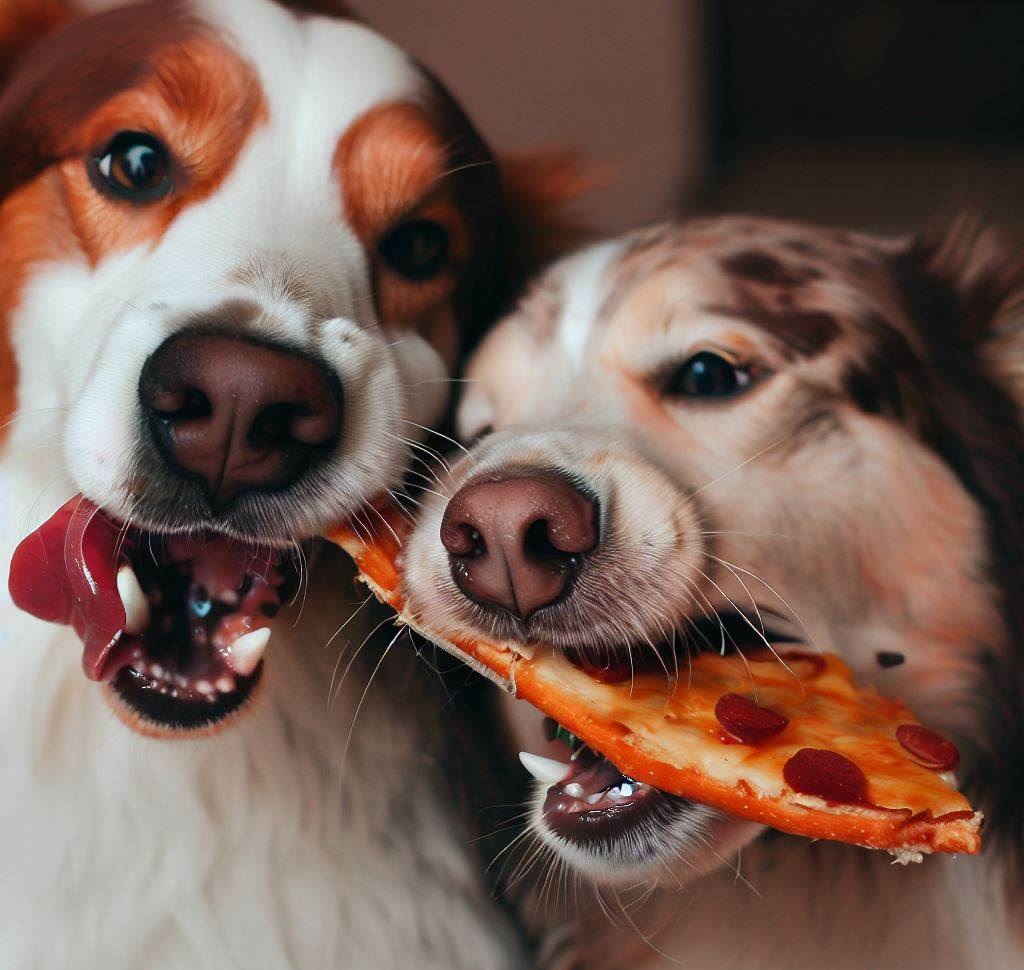
Is pepperoni safe for dogs to eat in small amounts?
No, giving your dog pepperoni is not recommended, even in small amounts. Pepperoni is high in fat, salt, and spices, which can cause digestive problems and other health issues for dogs.
Can pepperoni be toxic to dogs?
Pepperoni is not toxic to dogs, but it can cause health problems if consumed in large amounts or on a regular basis.
What are the risks of feeding my dog pepperoni?
The risks of feeding your dog pepperoni include obesity, pancreatitis, salt toxicity, garlic toxicity, and an increased risk of cancer.
Can dogs have pepperoni as a treat?
No, pepperoni should not be given as a treat to dogs. There are plenty of safe and healthy alternatives that dogs can enjoy, such as lean meats and fruits and vegetables.
What should I do if my dog accidentally eats pepperoni?
If your dog accidentally eats a small piece of pepperoni, monitor them for any signs of discomfort, such as vomiting or diarrhea. If they show any symptoms, contact your veterinarian right away.
Can pepperoni cause choking in dogs?
Yes, pepperoni can be a choking hazard for dogs, especially small breeds. Always supervise your dog when they are eating to prevent choking.
What if my dog loves the taste of pepperoni?
If your dog loves the taste of pepperoni, there are plenty of safe and healthy treats that you can give them instead. Look for treats that are specifically formulated for canine nutrition.
Can puppies eat pepperoni?
No, puppies should not be given pepperoni. Puppies have delicate digestive systems and should stick to a diet of high-quality puppy food.
Can dogs with health issues eat pepperoni?
Dogs with health issues, such as obesity or pancreatitis, should avoid pepperoni altogether. Always consult with your veterinarian before giving your dog any new food or treats.
Are there any benefits to giving my dog pepperoni?
No, there are no nutritional benefits to giving your dog pepperoni. Sticking to a balanced diet of high-quality dog food and safe treats is best.
Conclusion
In summary, dogs should not eat pepperoni. The high fat and salt content and the potential for choking and allergic reactions make it an unsafe choice for your furry friend. Stick to a balanced diet of high-quality dog food and safe treats, and your dog will be happy and healthy for years to come.

